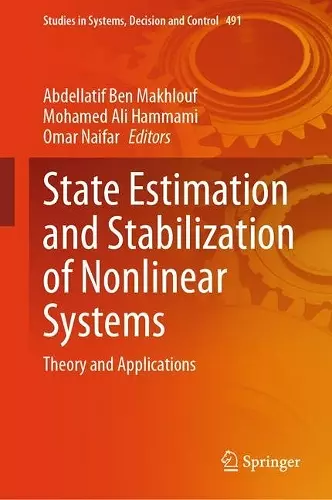State Estimation and Stabilization of Nonlinear Systems
Theory and Applications
Mohamed Ali Hammami editor Omar Naifar editor Abdellatif Ben Makhlouf editor
Format:Hardback
Publisher:Springer International Publishing AG
Published:7th Nov '23
Currently unavailable, and unfortunately no date known when it will be back

This book presents the separation principle which is also known as the principle of separation of estimation and control and states that, under certain assumptions, the problem of designing an optimal feedback controller for a stochastic system can be solved by designing an optimal observer for the system's state, which feeds into an optimal deterministic controller for the system. Thus, the problem may be divided into two halves, which simplifies its design. In the context of deterministic linear systems, the first instance of this principle is that if a stable observer and stable state feedback are built for a linear time-invariant system (LTI system hereafter), then the combined observer and feedback are stable. The separation principle does not true for nonlinear systems in general. Another instance of the separation principle occurs in the context of linear stochastic systems, namely that an optimum state feedback controller intended to minimize a quadratic cost is optimal forthe stochastic control problem with output measurements. The ideal solution consists of a Kalman filter and a linear-quadratic regulator when both process and observation noise are Gaussian. The term for this is linear-quadratic-Gaussian control. More generally, given acceptable conditions and when the noise is a martingale (with potential leaps), a separation principle, also known as the separation principle in stochastic control, applies when the noise is a martingale (with possible jumps).
ISBN: 9783031379697
Dimensions: unknown
Weight: unknown
445 pages
2023 ed.